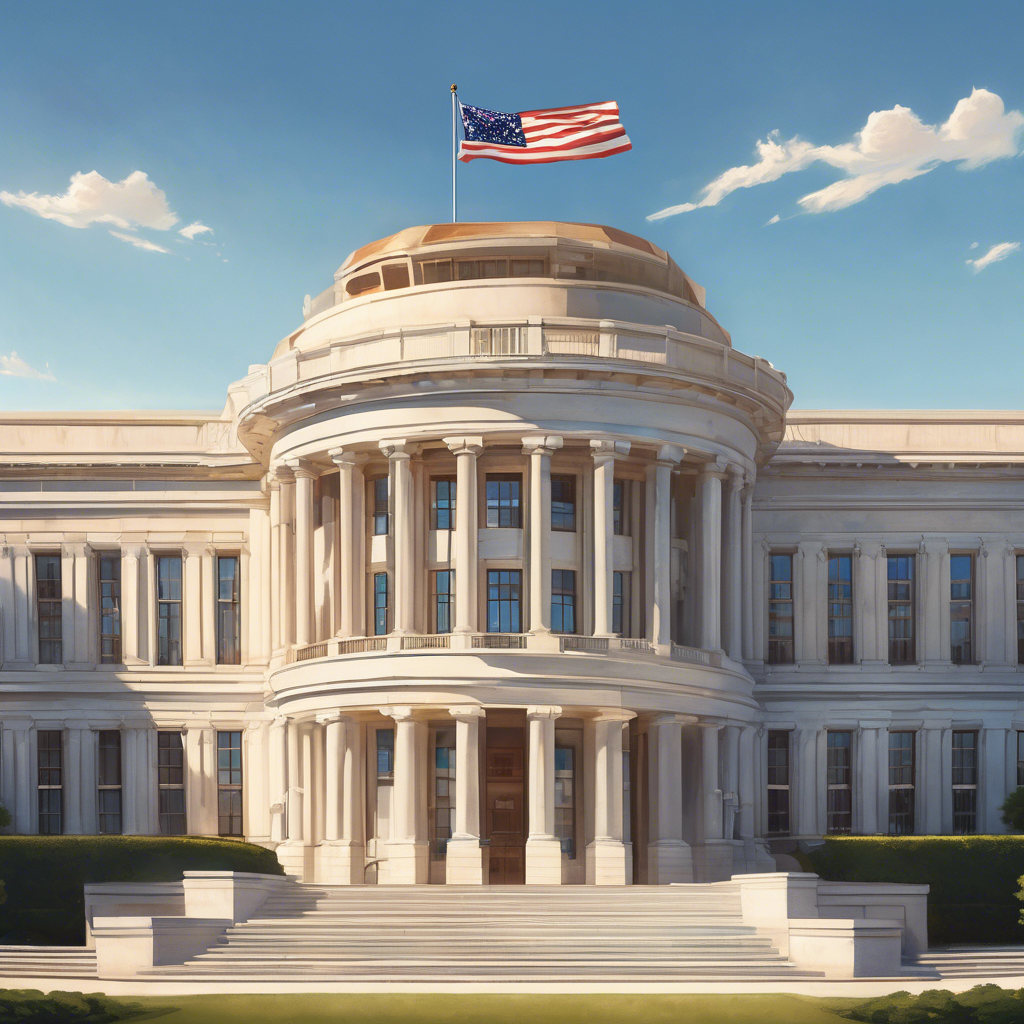House Republicans Propose 10-Year Ban on State AI Regulation Amid Industry Push for Federal Oversight

WASHINGTON (AP) — House Republicans shocked tech industry observers and angered state governments by including a clause in their “big, beautiful” tax bill that would prohibit states and localities from regulating artificial intelligence (AI) for ten years. This brief yet impactful provision, embedded in the House Energy and Commerce Committee’s extensive markup, would greatly benefit the AI industry, which has lobbied for uniform and light regulation as companies develop transformative AI technologies. However, the clause faces significant hurdles in the U. S. Senate, where procedural rules, such as the Byrd Rule, may prevent its inclusion in the GOP legislation. Sen. John Cornyn (R-Texas) expressed doubt about the clause’s survival, noting the Byrd Rule requires budget reconciliation bills to focus on budgetary issues rather than broad policy changes. “That sounds to me like a policy change, ” he said, emphasizing its unlikely passage. Lawmakers from both parties have shown interest in AI regulation, with many introducing bills, including bipartisan efforts, but progress has been slow due to Congressional divisions. An exception is a bipartisan bill expected soon to be signed into law by President Donald Trump, which imposes stricter penalties on distributing intimate “revenge porn” images, including those generated by AI, without consent. Sen. Bernie Moreno (R-Ohio) argued for federal regulation due to AI’s borderless nature, stating that a patchwork of 50 state laws is impractical. Nonetheless, he remained uncertain about the House proposal’s prospects in the Senate. The AI provision bans states and political subdivisions from enforcing any laws regulating AI models, systems, or automated decision systems. This could invalidate state regulations on AI applications in business, research, utilities, education, and government decision-making, affecting systems from popular AI like ChatGPT to tools determining hiring or housing eligibility. The proposal aligns with a broader Trump administration effort to eliminate regulations that limit AI’s risks and inherent bias. Meanwhile, about half of U. S.
states have passed laws restricting AI deepfakes in political campaigns, driven by concerns over AI-generated deceptive media affecting global 2024 elections. California State Senator Scott Wiener, a Democrat, condemned the Republican proposal as “truly gross, ” criticizing Congress’s failure to regulate AI responsibly while simultaneously barring states from acting. A bipartisan group of state attorneys general also opposed the bill in a letter, warning of federal overreach undermining state efforts, as highlighted by South Carolina Attorney General Alan Wilson (R). Amid the debate, AI industry leaders continue advancing research while vying to develop dominant AI systems. They advocate for uniform, minimal federal regulation to compete internationally, especially with Chinese firms. OpenAI CEO Sam Altman testified to the Senate that a “patchwork” of regulations would hinder innovation, urging a single, light-touch federal framework. At the same hearing, Sen. Ted Cruz proposed a 10-year “learning period” banning states from comprehensive AI regulations, seeking a level playing field for AI developers. Altman expressed support for a unified federal approach, despite uncertainty about the exact meaning of a 10-year delay. Microsoft president Brad Smith cautiously endorsed allowing the federal government to lead regulation, likening it to nurturing early internet commerce under limited U. S. regulation, emphasizing the need to resolve details around product safety and pre-release reviews. This stance marks a shift for executives like Altman and Smith, who previously supported AI regulation and praised pioneering state measures, such as facial recognition safeguards in Washington. Ten Senate Republicans have shown sympathy for a national AI regulatory framework, though bipartisan consensus sufficient to overcome a filibuster remains uncertain. Sen. Mike Rounds (R-South Dakota) supported federal regulation to avoid a “real mess” from disparate state laws, emphasizing Congress’s role in overseeing interstate commerce involving AI. —————— Reporting by O’Brien in Providence, Rhode Island; contributions from Ali Swenson (New York), Jesse Bedayn (Denver), Jeffrey Collins (Columbia, SC), and Trân Nguyễn (Sacramento, CA).
Brief news summary
House Republicans have proposed a contentious clause in their tax bill that would prohibit states and local governments from regulating artificial intelligence (AI) for ten years. Included in the House Energy and Commerce Committee’s markup, this provision seeks to establish a uniform, minimal federal regulatory framework preferred by AI companies to avoid a fragmented set of state laws. However, the measure has drawn strong opposition from state officials and technology experts who view it as federal overreach that diminishes states’ capacity to protect their citizens. Several states have already enacted laws targeting AI-related election deepfakes amid rising AI risks. While senators across parties agree on the need for AI regulation, political disagreements and procedural obstacles have stalled comprehensive legislation. Industry leaders, including OpenAI’s CEO, endorse a single federal framework to foster innovation and competition, and some senators advocate for a “learning period” to delay strict regulations. This ongoing debate underscores the challenges in balancing rapid AI advancement, public safety, and the division of regulatory authority between federal and state governments.
AI-powered Lead Generation in Social Media
and Search Engines
Let AI take control and automatically generate leads for you!

I'm your Content Manager, ready to handle your first test assignment
Learn how AI can help your business.
Let’s talk!

Central Bank Digital Currencies: The Role of Bloc…
Central banks worldwide are increasingly investigating the integration of blockchain technology to create digital currencies known as Central Bank Digital Currencies (CBDCs).

Introducing Strands Agents, an Open Source AI Age…
I’m excited to announce the release of Strands Agents, an open-source SDK that simplifies building and running AI agents with a model-driven approach using just a few lines of code.

Blockchain Association taps crypto-savvy CFTC com…
The Blockchain Association, a leading crypto lobbying group, sought a new CEO with strong Washington connections and deep crypto knowledge, aiming to fill the role swiftly to capitalize on a narrow legislative window before next year’s midterms.

U.S. Concerns Over Apple-Alibaba AI Integration i…
The Trump administration and U.S. congressional officials are examining a major partnership between Apple and Alibaba, reported by The New York Times, involving the integration of Alibaba’s AI technology into Apple iPhones sold in China.

Meet the 7 Best Cryptos to Buy Today in May 2025 …
As May 2025 progresses, the crypto landscape is energized by technological breakthroughs and evolving regulations.

Dubai and Abu Dhabi's Financial Markets Rise Amid…
Dubai and Abu Dhabi's financial markets ended the week positively, fueled by renewed investor confidence following key business agreements made during U.S. President Donald Trump's Gulf tour.

Blockchain News by TimesofBlockchain
TimesofBlockchain remains a premier source for the latest news and updates in the blockchain sector, offering comprehensive coverage across the rapidly evolving landscape.

 Auto-Filling SEO Website as a Gift
Auto-Filling SEO Website as a Gift








 Auto-Filling SEO Website as a Gift
Auto-Filling SEO Website as a Gift

